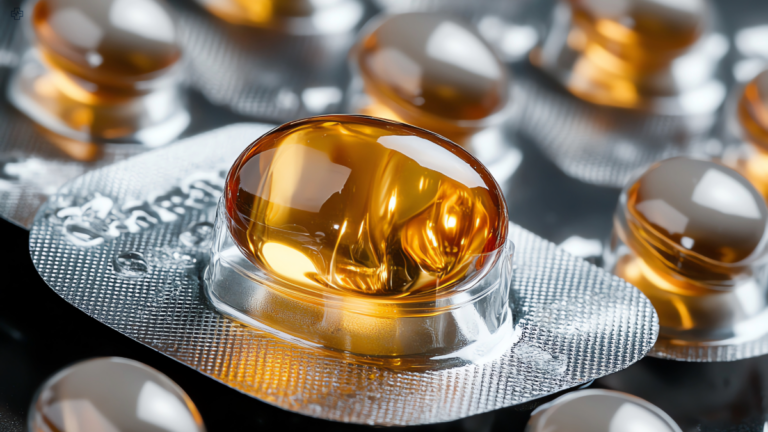Recently the use of bioidentical hormones has gained traction as a treatment approach in various medical conditions, including hormonal imbalances, menopause, and more recently, cardiovascular issues like atrial fibrillation (AFIB). Bioidentical hormones, such as estrogen, progesterone, and testosterone, are chemically identical to the hormones naturally produced by the human body, distinguishing them from synthetic hormones that differ structurally.
This distinction is significant as it created the debate on the potential benefits of bioidentical hormones, particularly testosterone, in managing conditions like AFIB. Similar to the interest seen in other hormones like cortisol and thyroid hormones, which play crucial roles in stress response and metabolism, the exploration of bioidentical testosterone represents a broader trend towards natural and personalised approaches in hormone therapy.
Nature and Source of Bioidentical Hormones
Bioidentical hormones are typically derived from plant sources such as soy or yams. These plant-based compounds are processed in laboratories to create hormones that are structurally identical to those produced in the human body. This category includes widely recognised hormones like estrogen, progesterone, and testosterone.
Proponents of bioidentical hormone therapy argue that these compounds are more compatible with the body’s natural processes, potentially leading to fewer side effects compared to synthetic alternatives. This perception of being “more natural” has contributed to the popularity of bioidentical hormones, especially among patients seeking alternatives to conventional hormone replacement therapies.
| Hormone | Source |
|---|---|
| Estrogen | Soybeans, yams |
| Progesterone | Yams |
| Testosterone | Wild yam |
| Thyroid hormone | Pigs, cows |
Exploring Bioidentical Testosterone for Atrial Fibrillation (AFIB)
Atrial fibrillation (AFIB) is characterised by an irregular and often rapid heart rate that increases the risk of stroke, heart failure, and other cardiovascular complications. Recent observations have sparked interest in how hormonal levels, particularly testosterone, might influence heart conditions, including AFIB. Studies have noted that men with lower testosterone levels tend to have a higher incidence of cardiovascular issues, suggesting a possible link between testosterone deficiency and heart health. However, this relationship is complex and not fully understood, with ongoing research aimed at clarifying the potential role of testosterone in cardiovascular function.
The theoretical benefits of using bioidentical testosterone in patients with AFIB or other cardiovascular issues are grounded in the hormone’s effects on the cardiovascular system. Testosterone is believed to improve vascular function, reduce inflammation, and influence the electrical properties of the heart muscle, which could potentially stabilise cardiac rhythms. Additionally, testosterone’s anabolic effects might help maintain or improve heart muscle strength, which is crucial in managing AFIB. However, direct evidence linking testosterone therapy to improved AFIB outcomes remains limited, and the potential benefits are still under investigation.
Research and Application: Balancing Benefits and Risks

The application of bioidentical testosterone in AFIB treatment is based on the hypothesis that normalising or optimising testosterone levels could improve cardiac health and potentially stabilise arrhythmias. Current research is exploring several key questions, including the direct impact of testosterone on arrhythmias like AFIB and the overall safety profile of testosterone therapy in this context.
While some studies suggest that testosterone might offer cardiovascular benefits, there are also concerns about its potential risks. High levels of testosterone have been associated with increased risks of thrombosis and may exacerbate certain cardiovascular conditions, highlighting the need for a balanced approach in evaluating its use.
The broader trend towards personalised medicine also plays a role in the interest in bioidentical hormones. Personalised medicine aims to tailor treatments to individual patient profiles, including their hormonal status, genetic makeup, and specific health needs. Bioidentical hormones align with this approach by offering the possibility of customised dosages and formulations that more closely match a patient’s natural hormone levels. This trend reflects a shift away from one-size-fits-all treatments towards more nuanced, patient-centric therapies.
Many patients and practitioners prefer bioidentical hormones because they are perceived as being more natural compared to synthetic hormones, despite both types being produced in laboratories. This preference is rooted in the belief that bioidentical hormones, due to their identical structure to endogenous hormones, may be better tolerated and more effective. However, this perception does not always align with scientific evidence, as both bioidentical and synthetic hormones can have similar risks and side effects.
The appeal of bioidentical hormones lies in their promise of a more harmonious interaction with the body’s endocrine system, even though robust clinical data comparing the long-term safety and efficacy of bioidentical versus synthetic hormones remains sparse.
Regulation, Safety and Rigorous Research
One of the primary challenges with bioidentical hormones, including testosterone, is the lack of extensive, long-term clinical trials that directly compare them to synthetic hormones in terms of safety and efficacy for specific conditions like AFIB. Additionally, the regulation of compounded bioidentical hormones can be less stringent than that of commercially available synthetic hormones, leading to concerns about consistency, purity, and quality control.
The broader medical community continues to call for more rigorous research to establish clear guidelines for the use of bioidentical hormones, particularly in cardiovascular applications where the balance of risks and benefits needs careful evaluation.
Critical Perspective
While there is growing interest and some positive anecdotal evidence or results from small-scale studies, the broader adoption of bioidentical testosterone in treating or preventing conditions like AFIB requires a critical perspective. Current trends in hormone therapy emphasise the importance of personalised approaches and natural alternatives, yet these must be backed by solid scientific evidence to ensure patient safety.
Recent studies, such as those investigating the effects of bioidentical hormones on menopause symptoms and testosterone’s role in muscle mass preservation, provide useful parallels that underscore the ongoing exploration in this field. For instance, research has shown mixed results on whether bioidentical hormone therapy truly offers advantages over traditional synthetic options, highlighting the variability in patient outcomes and the need for personalised assessment.
Similar recent studies have also explored the impact of testosterone therapy on other aspects of men’s health, such as cognitive function and metabolic syndrome, reflecting a broader interest in understanding how hormone levels influence overall well-being. These studies use context-specific research, where the implications of hormone therapy are considered within the unique physiological and health profiles of individual patients.

